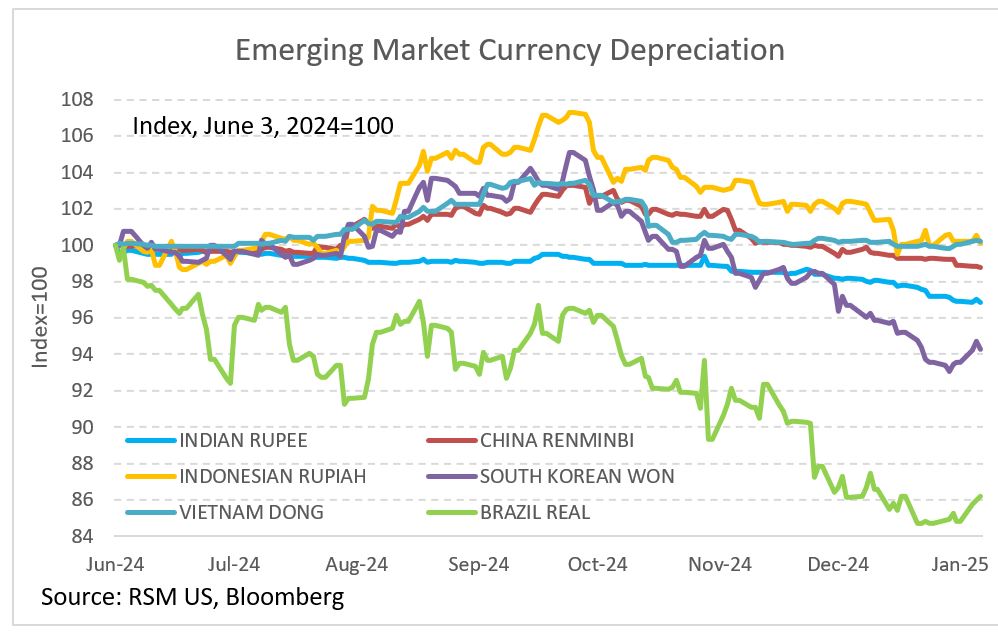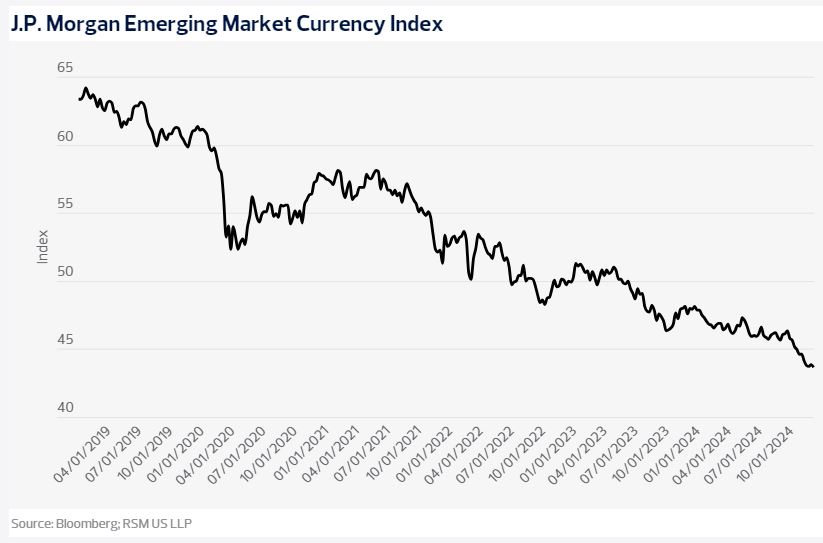



Emerging market currencies have been under significant pressure, depreciating against the U.S. dollar since early October 2024. This trend is attributed to various factors, including growth differentials, interest rate disparities, and policy changes initiated by the Trump administration [08a7faed]. The real trade-weighted dollar index has risen 6.88% over the past year, intensifying the challenges faced by these economies [aa149f23].
Countries with fixed currency pegs, such as China, and those transitioning away from pegs, like India, are particularly vulnerable. Additionally, nations with flexible exchange rates, such as Brazil, are also feeling the impact [08a7faed]. The Mexican peso has seen a decline of 16%, while the Brazilian real has dropped 20% [aa149f23]. The J.P. Morgan Emerging Market Currency Index fell by 9% in 2024, reflecting the broader struggles of these currencies [aa149f23].
The year 2025 is expected to bring further adjustments as aggressive U.S. trade policies continue to influence global markets. Economies with weak financial systems or high import volumes are at a greater risk of experiencing significant currency depreciation [08a7faed]. This is particularly concerning for countries such as Argentina, Belarus, Ecuador, El Salvador, Ethiopia, Ghana, Kenya, Nigeria, Pakistan, and Tunisia, which the International Monetary Fund (IMF) has identified as being at risk of default [aa149f23].
Despite these challenges, some emerging economies are demonstrating resilience. For instance, South Africa's rand increased nearly 10% following the May 2025 elections, and the S&P Global Outlook has maintained a positive projection for the country's GDP growth [aa149f23]. High-yield dollar bonds have also shown notable performance, particularly in Argentina and Ghana due to recent economic reforms [e7c33850].
As policymakers navigate these turbulent waters, the focus remains on implementing strategies to stabilize currencies and manage debt obligations effectively. The performance of emerging markets in 2024 and beyond will be crucial in determining their resilience against the backdrop of a strong dollar and rising external pressures [3e11e5c5].